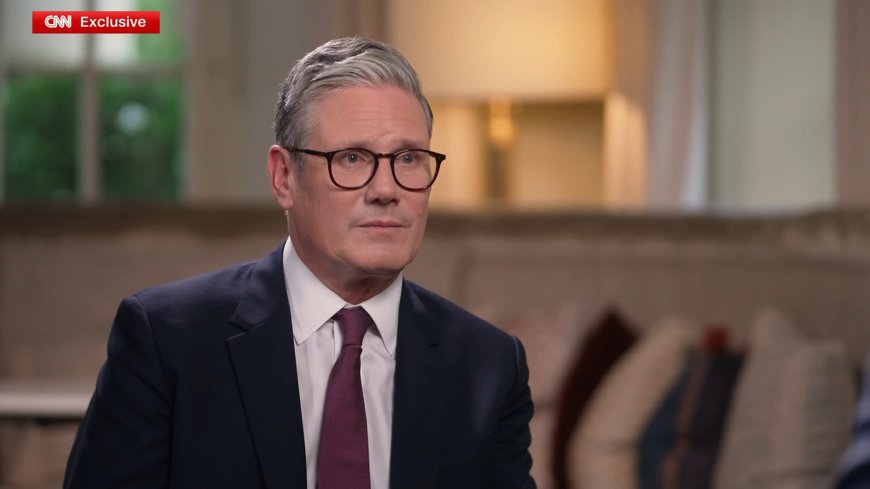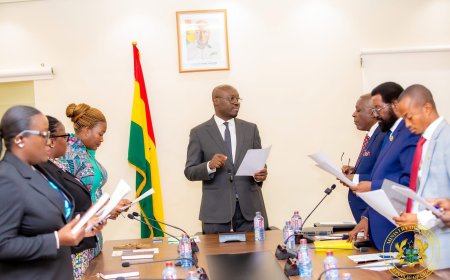Britain’s Starmer says Biden ‘in good form’ in private talks, reaffirms ‘unshakable support’ for NATO

Winston Churchill, often considered Britain’s greatest leader, resigned at 80 in the face of mounting health problems. Keir Starmer, Britain’s newest leader, wants to force lawmakers in the country’s upper chamber to step down at the same age. Does this mean he thinks octogenarians like President Joe Biden should step back from politics?
Obviously in America, it’s for the American people to decide who they want to be their president,” Starmer told CNN’s Jake Tapper in an exclusive interview on the sidelines of the NATO summit in Washington, a week after he became prime minister of the United Kingdom.
Despite growing questions about Biden’s mental acuity and fitness for a second term, Starmer said the 81-year-old president had been “in good form” when the two met for talks, but “of course” he would say if he was concerned about him.
In the interview on CNN’s The Lead, Starmer also reaffirmed his new government’s “unshakable support” for the NATO alliance, described King Charles III as “incredible,” and discussed how he “dragged” his party back to the center ground in British politics, a feat which helped him consign the Conservative Party to its worst-ever defeat in last week’s election.
Starmer, 61, is the latest in a series of world leaders who have been asked whether Biden is too old to campaign and govern effectively. But he spoke positively about their discussions at the summit on Wednesday.
“We were billed for 45 minutes. We probably went on for the best part of an hour, covered a lot of ground – and he was in good form,” Starmer told Tapper.
Starmer said the talks were “a really good opportunity” for him to “speak to the president about the special relationship” between their two countries. He said Biden “deserves credit” for presiding over a summit that Ukrainian President Volodymyr Zelensky has called a success.
Zelensky’s comments were made before Biden mistakenly introduced the Ukrainian leader as “President Putin,” having to correct himself hastily. In a press conference later Thursday evening, Biden also mistakenly called his Vice President, Kamala Harris “Vice President Trump” when discussing if she could beat the former president.
On his plan to force lawmakers in the House of Lords – which scrutinizes the government and makes recommendations on laws – to step down after turning 80, Starmer said the policy was “more to do with the size” of the unelected upper chamber than the fitness of elderly politicians.
"Our second chamber is the biggest second chamber in the world. We’ve got over 800 members. We’ve got to get the size down,” he said.
Starmer is not alone in trying to downplay concerns about Biden’s age. French President Emmanuel Macron, attending the summit in a weakened position with his country in political limbo after a snap parliamentary election, said Biden remained “in charge” and “clear on the issues he knows well.”
Starmer was also asked by Tapper to clarify comments made by David Lammy, a longstanding Labour politician who became Britain’s foreign secretary last week.
In 2018, Lammy called then-President Donald Trump – who will also turn 80 in office if re-elected to a second term in November – a “woman-hating, neo-Nazi-sympathizing sociopath” and a “profound threat to the international order.”
Starmer said his government will “work with whoever is elected” in November, but stressed “I’m a progressive and we’re sister parties with the Democrats.”
Starmer’s comments echoed his previous remarks on a potential Trump presidency; he told the BBC last year he would “have to make it work,” though that doesn’t mean “we would agree on everything.”
Asked about Trump’s threats to leave NATO and cut a deal with Putin, likely ending the war in Ukraine on terms favorable to Russia, Starmer praised the “clarity of purpose” that other members have shown in the alliance during the summit. He also said Britain remains “absolutely committed” to raising its defense spending to 2.5% – above the NATO guideline of 2% – but did not provide a timeline for this.
“My position as Prime Minister of the United Kingdom could not be clearer, which is an unshakable support for NATO,” he said. “We were proudly one of the countries that was there at the founding of NATO… We’re proud of that history.”
Tacking to the center
A week ago, Starmer guided the Labour Party to a historic victory, winning a majority of 172 seats in the House of Commons and bringing to an end 14 years of Conservative rule.
But, almost immediately, Starmer’s victory was described as hollow and his mandate fragile, with critics pointing out Labour’s relatively low share of the popular vote, despite its commanding victory under Britain’s first-past-the-post electoral system.
Asked if his victory was fueled more by anger towards the Conservatives than enthusiasm for Labour, Starmer hit back, saying his team deserved praise for turning the party around after it slumped to a dismal defeat in 2019 under the left-wing leadership of Jeremy Corbyn.
“I took over the Labour Party four and a half years ago. We’d just had the worst general election result since 1935. The pessimists were saying, ‘The Labour Party will never win a general election again.’ The optimists said, ‘Well you might, but it will take you 10 years,’” Starmer said.
“I said, ‘No, we’re going to do it in one parliamentary term. But we’ve got to be ruthless, we’ve got to be steely, we’re going to change the Labour Party, we’re going to turn it inside out and make sure it’s a party that always says: Country first, party second.’”
He said he had managed to pull his party back to the center ground, shunning the extremes.
“Brits are reasonable, tolerant – they don’t much like the extreme left, they don’t much like the extreme right. And we underestimate that,” he said. “One of the phrases I used in the election was we need a politics that trod more lightly on people’s lives. And that’s very important in Britain.”
Although he ruled out trying to rejoin the European Union, Starmer said he wanted to “reset” Britain’s relationship with the bloc. Starmer’s “number one mission,” he said, is to restore Britain to economic growth, which has virtually flatlined since the 2008 financial crisis
Starmer has softened his view on the British monarchy, having once talked about abolishing it, and said he was looking forward to his weekly audience with King Charles III, now he’s become prime minister.
“It is always valuable to listen to what he has to say. He’s incredibly interested in politics, in the affairs across the United Kingdom, and global affairs,” said Starmer. “They’re a really good frank exchange of views and long may they continue.”
Source : CNN
























































